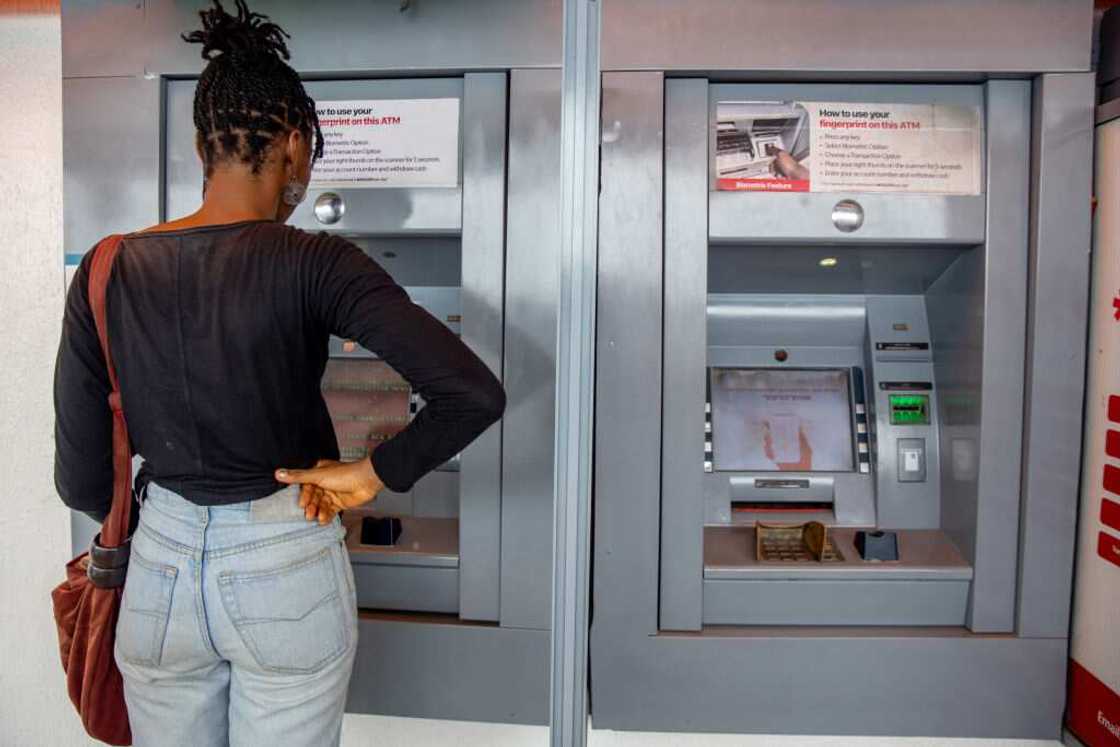"Don’t Be a Victim”: Zenith, Access, GTB, Others Send Messages to Customers As Fraud Losses Rise to Over N9bn
- Commercial banks in Nigeria have intensified efforts to tackle rising online scams targeted at their customers
- A new report from NIBSS shows that, within six months of 2023, over N9 billion was lost to fraud in the banking system
- Zenith Bank, Access Bank, and United Bank of Africa are some of the commercial banks that have recently been using social media to educate their customers
Unlock the best of Legit.ng on Pinterest! Subscribe now and get your daily inspiration!
Nigerian banks are concerned about the rising number of customers falling victim to fraud and have stepped up efforts to educate customers.
In similar messages, the banks provided steps on how customers can tackle online scams targeted at them.

Source: Getty Images
Bank fraud
A recent report by the Financial Institutions Training Centre (FITC) showed that over N9 billion was lost to banking system fraud this year.

Read also
“Link your NIN”: Step-by-step guide to upgrading prepared meters free of charge before it is too late
PAY ATTENTION: Share your outstanding story with our editors! Please reach us through info@corp.legit.ng!
A breakdown revealed that in the first quarter, fraud losses stood at N5.1 billion, rising to N9.5 billion as of July 2023.
The 2023 figures bring the total amount lost to fraud in the banking sector since 2019 to N50.5 billion.
Banks' messages to customers
Various banks such as the United Bank of Africa, Guaranty Trust Bank, Zenith Bank, and First Bank have alerted their customers in different ways to fraud attacks, urging them to be vigilant and careful about disseminating important personal information.
UBA, in a recent update titled: 'Don't be a victim of fraud', reads:
" Check for the Gold verified tick and followers' count before you reply to a tweet from any fraudulent page claiming to be an affiliate of UBAGroup on Twitter. Banking customers should be cautious as there isn't a WhatsApp department.
"Do not share your banking and card details with impersonators."
First Bank, in a tweet, said:
“Stay Scam Smart! Please note: Do not disclose your PINs, passwords, OTPs, and other personal banking details to anyone as FirstBank will never ask for these details.”
Zenith Bank urged customers to visit any nearest branch or automated teller machines to update their personal information.
“This action will ensure access to your account and financial information details are not exposed to third parties.
"Zenith Bank would never call, SMS, or e-mail requesting for your card details PIN, Token codes, Mobile/internet, Banking login details, or other account information. If you have received such a message, please do not respond.
GTbank message reads:
"We wish to draw your attention to the circulation of scam e-mails by fraudsters requesting customers to update their accounts records by clicking links to spurious internet banking websites. These emails also request customers to provide other sensitive information about their ATM personal identification numbers (PIN)."
"If you receive or have received such mails please ignore as they do not originate from Guaranty Trust Bank Limited."
Fidelity Bank also said:
"Fidelity Bank would never ask you for your PIN so never believe anyone that claims to be a bank staff who asks for your PIN. It is a scam!
"Protect yourself and loved ones from cyber criminals."
Access Bank also warned its customers:
"Please be alert, especially at this time, and protect yourself against fraudsters by never sharing your password, BVN, and/or PIN with another person, not even an Access Bank employee, never clicking on links or opening/downloading attachments or software from unknown sources, emails, or text messages, and never responding to unsolicited messages and calls that ask for your personal information or financial details; if you are ever asked any of these, refuse and contact us immediately.
"Shine your eyes, no fall mugu": NCC warns Nigerians, exposes fraudsters' tricks

Read also
NIPOST lists items not allowed for courier services, prepares for October postcodes verification system
Meanwhile, in another report, the NCC has received 20,000 complaints from Nigerians who have fallen victim to telecom fraud.
The commission reveals that many fraudsters pose as telecom operators or loan sharks to deceive people and extract money from them.
NCC wants Nigerians to be cautious when dealing with suspicious phone calls, messages, or requests.
Source: Legit.ng




